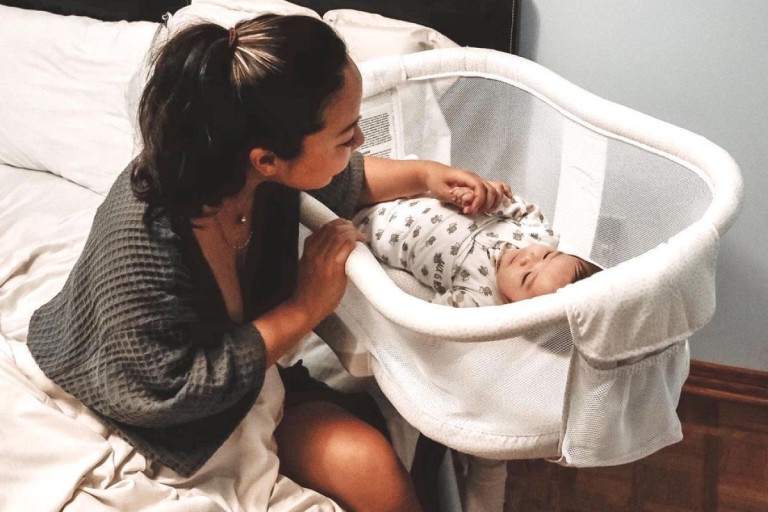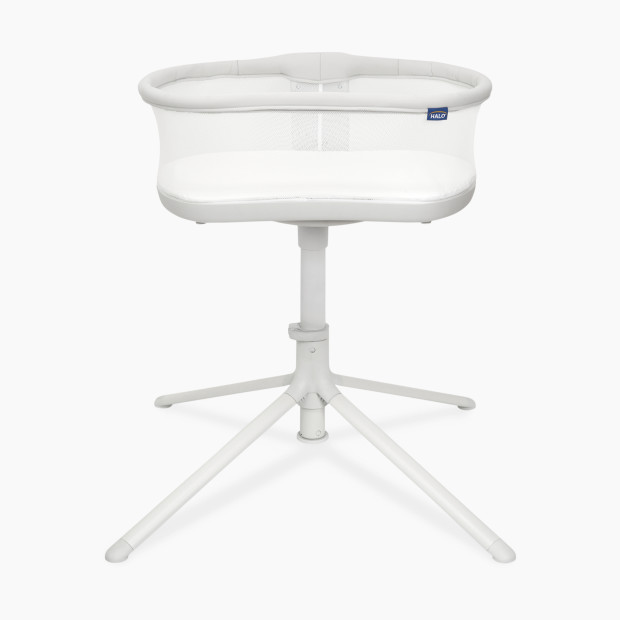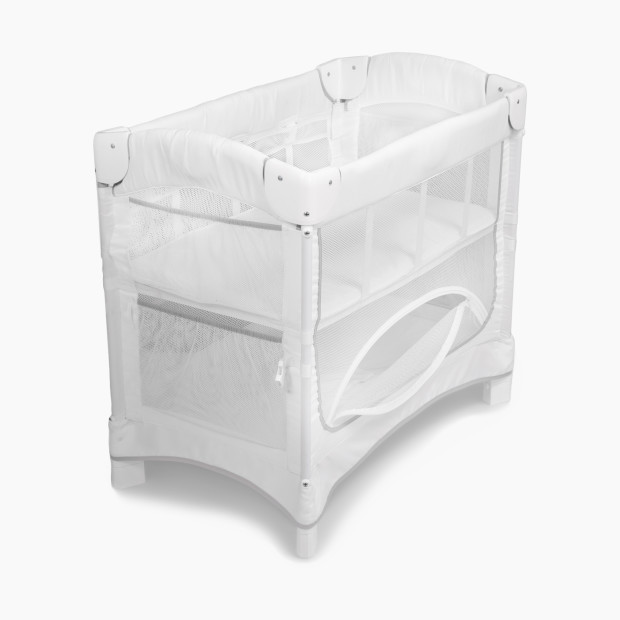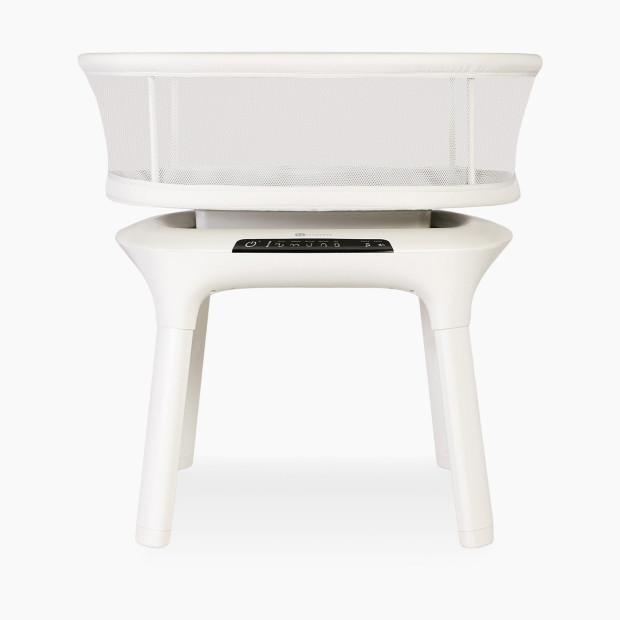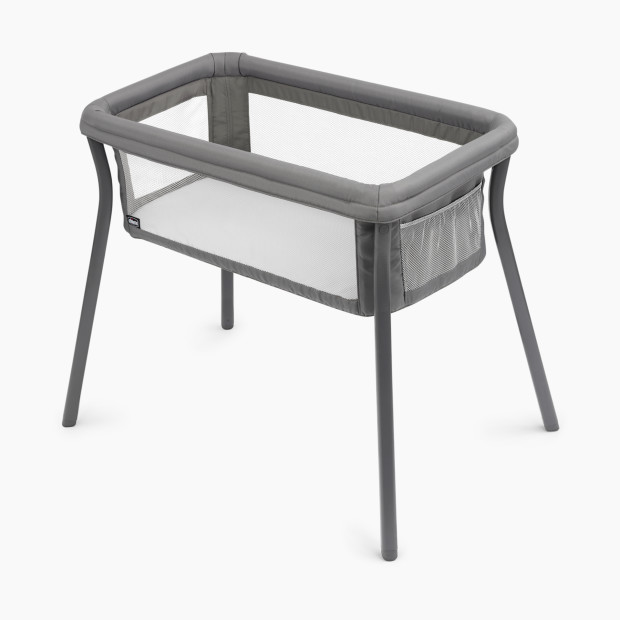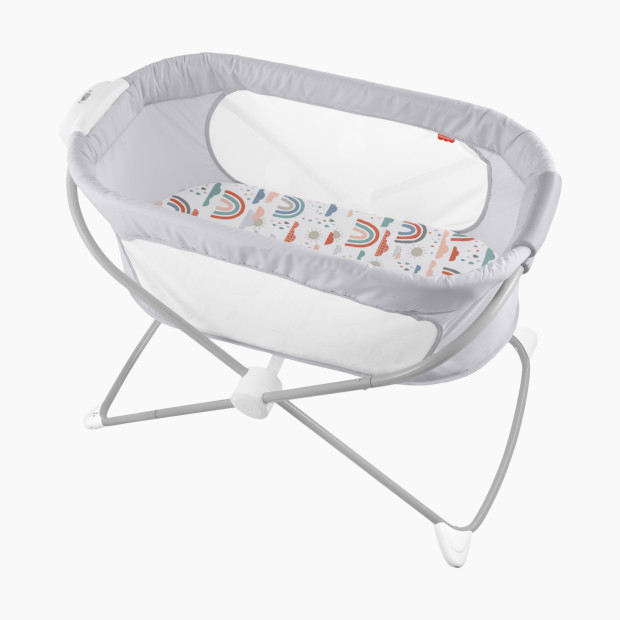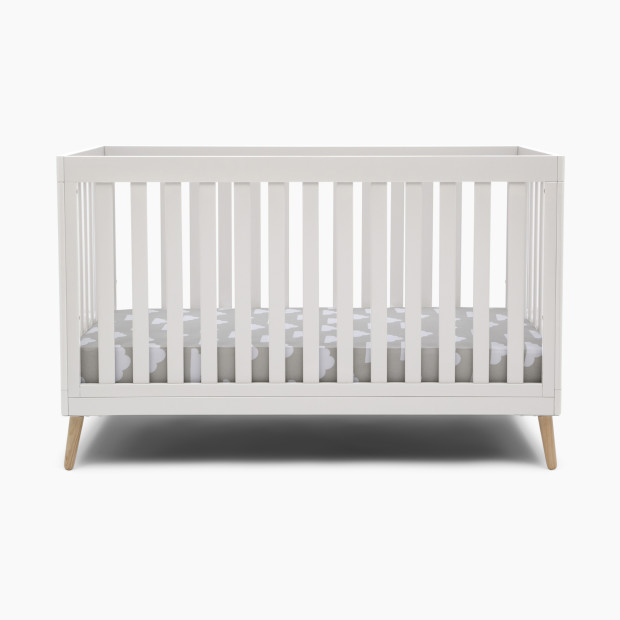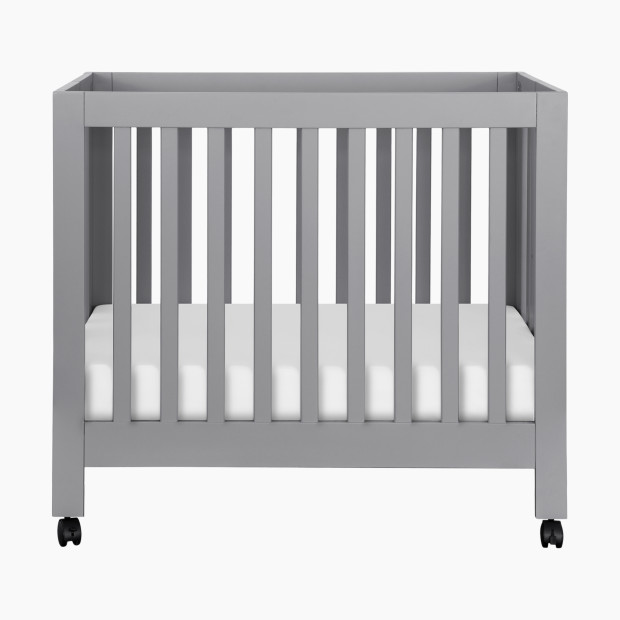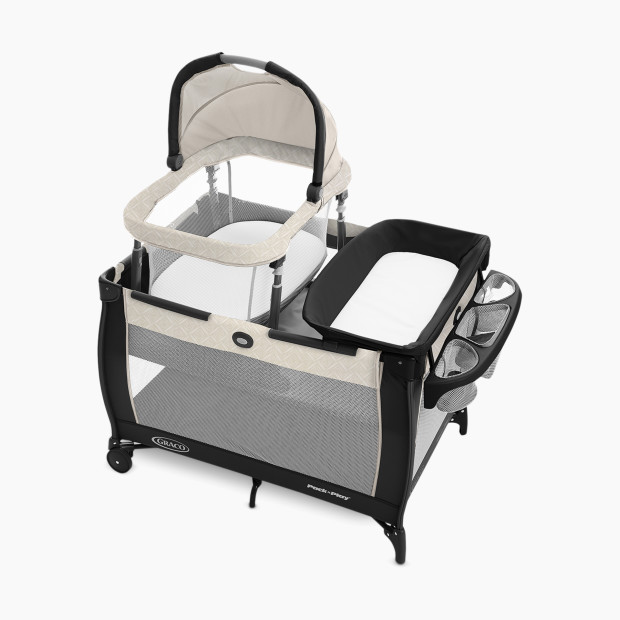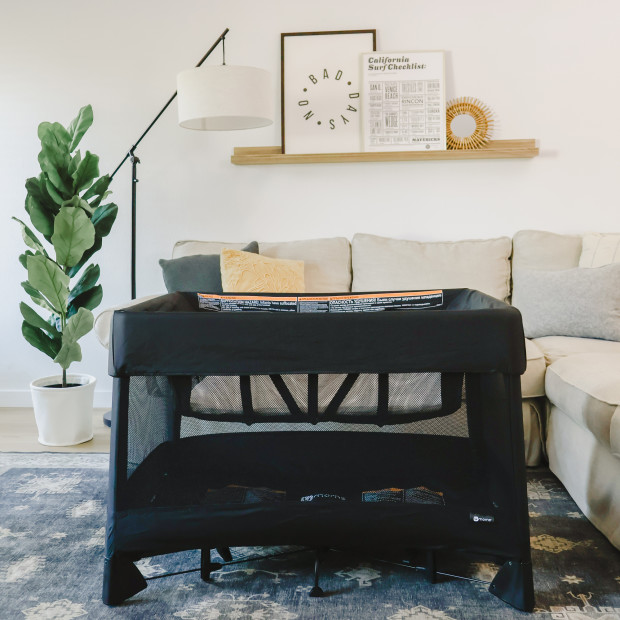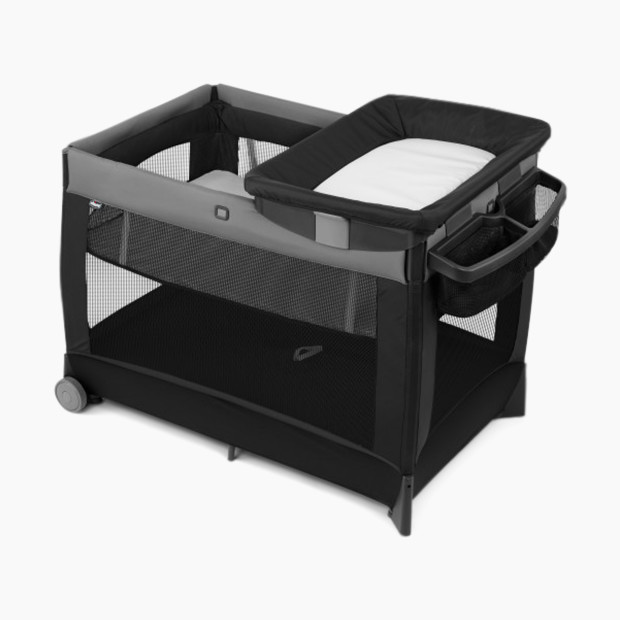Do I Really Need a...Bassinet?
How to figure out if a bassinet is right for you—and what to use instead if you decide to skip.
Do I Really Need…? is a series designed to help you figure out what baby products are worth an add versus what you might be able to skip as you build your baby registry. While everyone’s threshold differs when it comes to how much baby stuff is too much baby stuff, we’re helping you weigh the pros and cons of certain items that Babylist parents seem to struggle with the most.
Some parents are sure that a bassinet is something they want to add to their baby registry, while others are happy to skip it altogether. But what if you’re somewhere in the middle? Maybe you’re not sure if you want to add yet another piece of baby gear to your registry (and your home). Or maybe you’re wondering if you can skip the bassinet and go right to the crib, or even skip both and use a playard instead?
If you’re trying to figure out if you really need a bassinet, you’ve come to the right place.
Bassinet 101
First things first: bassinet basics.
What is a bassinet?
A bassinet is a sleep space that’s specifically designed for newborns and younger babies. It’s smaller than a crib and typically placed next to your bed so you have easy access to your baby throughout the night. Many are also mobile so your baby can nap near you during the day.
How long can a baby sleep in a bassinet?
You can use a bassinet from day one until your baby is able to move around, push up on their hands or roll over, usually between about three months and five months old. Some bassinets have weight restrictions as well, so be sure to check the specific guidelines of your particular model.
Is a bassinet better than a crib?
Other than the obvious features like size and portability, there’s no “better” when it comes to a bassinet versus a crib. Both are completely safe when used properly; it’s just a matter of personal preference.
Bassinet Pros and Cons
Next up: analyzing the pros and cons of a bassinet can help make your decision a little bit easier. Here’s a quick breakdown of each.
Bassinet pros:
- Convenient; keeps baby close
- Portable
- Small footprint
- Useful for night + naps
Bassinet cons:
- Short lifespan
- Many are expensive
- More gear to buy/store
So Do I Really Need a Bassinet?
You know the facts, and now it’s time to break down the decision.
A bassinet might be right for you if you:
- Want to maximize convenience. There’s no denying the convenience of a bassinet, especially overnight during those first few months. Newborns need to eat a lot, and there’s something to be said for reaching over to pick up your baby when it’s time for a feeding without having to venture too far from your bed.
- Want to keep baby close. New parenthood often equals heightened anxiety. Although a baby monitor can help, there’s nothing quite like being able to take a quick look to your side to watch baby’s chest rise and fall. A bassinet makes this easy to do. It also makes it easier to keep tabs on when your little one is beginning to fuss so you can gear up for a feeding.
- Need a portable nap solution for the newborn months. While baby loungers are perfect for supervised play and rest, they’re not approved for sleep, so if you’re looking for a safe place to keep your baby while they nap during the day then a bassinet is a great choice. Be sure to look for a model that either features wheels for easy portability or something that’s compact and light so you can move it freely around your home.
- Are planning on having multiple children. Investing in a bassinet is a bit easier to justify if you’re planning on having more than one baby. Since they’re used for such a short period of time—and only while your baby is immobile—they usually don’t sustain much wear and tear and can easily be passed down to future children.
These are some of the bassinets we love the most if it’s time to start shopping:
Check out our Best Bassinets guide for more recommendations.
A bassinet may be a skip if:
- Room-sharing isn’t for you. Light sleeper? Think hearing baby’s every squeak will make you anxious? Then you’ll probably want to skip a bassinet that’s designed to live right next to your bed. Putting your baby in a crib either in another spot in your room or in baby’s own room might be a better choice for you.
- You’re looking to save money. Even a less expensive bassinet can still cost a decent amount of money for a piece of baby gear that’s not going to last you past the first few months of your baby’s life.
- Minimalism is your jam. Skip the bassinet if the thought of bringing yet another piece of baby gear into your home makes your minimalist-loving heart beat a little bit too quickly.
So what are your other alternatives if you decide that you don’t want to add a bassinet to your registry?
- A full-size crib or a mini crib are both good bassinet alternatives that will last you much longer than a bassinet. Both can be used in your room if you still want to keep baby close or moved into your baby’s nursery space.
- A playard is another great bassinet alternative that will last you well into toddlerhood and can also be used as a safe place for your baby to play. Many playards even have bassinet attachments to save your back from reaching all the way down to pick up and put down your little one during those first few months.
These are some of our favorite cribs, mini cribs and newborn-friendly playards.
Check out our Best Cribs, Best Mini Cribs and Best Playards guides for more recommendations.
And just remember: there’s no right or wrong answer as to if you need a bassinet or not. It’s all weighing your options, spending a bit of time thinking things through and making the choice that fits your family’s needs best.
Babylist Staff
Editor
Babylist editors and writers are parents themselves and have years of experience writing and researching, coming from media outlets like Motherly, the SF Chronicle, the New York Times and the Daily Beast, and the fields of early childhood education and publishing. We research and test hundreds of products, survey real Babylist parents and consult reviews in order to recommend the best products and gear for your growing family.

